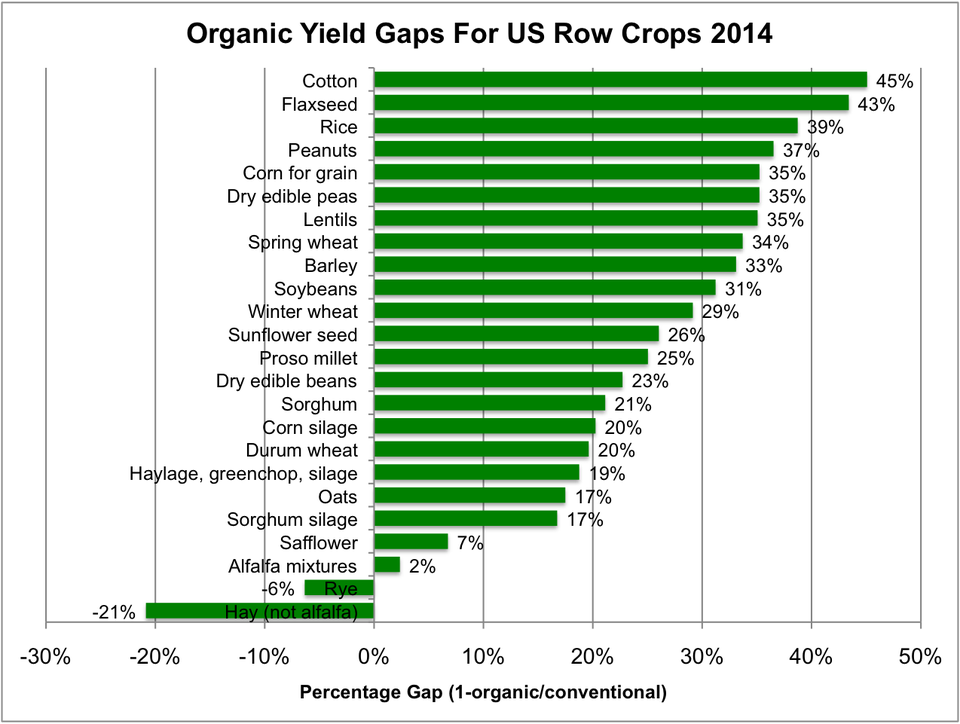Thousands Scammed By Organic Food Fraud
Organic food is a touchy subject. Many people think that because it is organic, it is more wholesome and better for the environment. However, there is scant empirical evidence to support these claims. In fact, I’ve argued before that organic food is actually worse for the environment because the yields are lower, requiring more acres of land be used for farming to produce the same amount of food.
This is why I thought it was interesting that thousands of people have been scammed by a large-scale scheme in which ordinary corn and soybeans were fraudulently marketed nationwide as “certified organic.”
According to an article in the Strib,
The U.S. Attorney’s Office in Cedar Rapids, Iowa, said in a filing Wednesday that potentially “tens of thousands” were defrauded by Randy Constant and his associates into paying a premium for products that they didn’t want.
Constant, of Chillicothe, Missouri, and three others have pleaded guilty and are awaiting sentencing. Constant, who owned an Iowa grain brokerage, acknowledged that he sold $142 million worth of corn, soybeans and wheat over a 7 ½ year period that wasn’t organic despite his representations.
Constant was aware that most of his product was grown using non-organic methods. The buyers included companies who processed the grain into other products that were marketed as organic.
While it is notable that there is a local example of people flouting the classification of organic, the more important point is that the entire organic food industry is based on arbitrary classifications of what is, and is not, “organic,” and that these varieties of crops are less productive than their conventional counterparts.
The figure below shows the “yield gap,” or difference in yield between organic and conventional crops.

In essence, the entire organic food movement is designed to satisfy an emotional desire to feel good about eating organic food, but there is no scientific basis for these warm fuzzy feelings.
For example, according to an article produced by the Hoover Institute:
“A prevalent “green myth” about organic agriculture is that it does not employ pesticides. Organic farming does, in fact, use insecticides and fungicides to prevent predation of its crops. More than 20 chemicals are commonly used in the growing and processing of organic crops and are acceptable under the U.S. Department of Agriculture’s arbitrary and ever-shifting organic rules. Many of those organic pesticides are more toxic than the synthetic ones used in ordinary farming.”
But the fatal flaw of organic agriculture is the low yields that cause it to be wasteful of water and farmland. Plant pathologist Steven Savage of the CropLife Foundation analyzed the data from the USDA’s 2014 Organic Survey, which reported various measures of productivity from most of the certified organic farms in the nation, and compared them to those at conventional farms. His findings were extraordinary.
In 59 of the 68 crops surveyed, there was a yield gap, which means that, controlling for other variables, organic farms were producing less than conventional farms. Many of those shortfalls were large: for strawberries, organic farms produced 61 percent less than conventional farms; for tangerines, 58 percent less; for cotton, 45 percent less; and for rice, 39 percent less.
As Savage observed: “To have raised all U.S. crops as organic in 2014 would have required farming of 109 million more acres of land. That is an area equivalent to all the parkland and wildland areas in the lower 48 states, or 1.8 times as much as all the urban land in the nation.”
“Perhaps the most illogical and least sustainable aspect of organic farming in the long term will turn be the absolute exclusion of “genetically engineered” plants that were modified with the most precise and predictable modern molecular techniques. Except for wild berries and wild mushrooms, virtually all the fruits, vegetables, and grains in our diet have been genetically improved by one technique or another—often as a result of seeds having been irradiated or via “wide crosses,” which move genes from one species or genus to another in ways that do not occur in nature. (These more-primitive techniques of genetic modification are acceptable in organic agriculture.)”
Warm fuzzy feelings get in the way of looking at data and making sound policy decisions. Emotionally-driven policy is what drives people to support wind and solar development, even though they are expensive and ineffective at producing the around-the-clock energy we all rely on. Emotionally-driven policy is also one of the main reasons we do not have more nuclear power plants in this country.
So the next time someone starts a self-righteous soliloquy about how they eat organic food, kindly let them know they’re actually hurting, not helping, the environment.